When AI tools first began making headlines, many business owners, including myself, felt a mix of curiosity and apprehension.
The narrative was often dominated by fears that AI automation would replace human roles, leaving small businesses scrambling to adapt.
I remember grappling with the idea that these advanced technologies might render my skills obsolete, leading to a reluctance to fully embrace the potential of AI in my business operations.
Fast forward to 2024, and my perspective has dramatically shifted. Rather than viewing AI as a threat, I now see it as an invaluable ally in driving efficiency and innovation.
Tools like ChatGPT have become integral to my workflow, generating content and brainstorming ideas, analyzing data, and enhancing customer interactions.
I’ve found with time that using Artificial Intelligence for business can augment human capabilities when used correctly, allowing us to focus on strategic initiatives while automating routine tasks.
Beyond just ChatGPT, a wealth of Artificial intelligence tools for business is available that can transform how businesses operate. From streamlining customer support to optimizing marketing strategies, these tools are designed to enhance productivity and drive revenue growth.

In this article, I’ll explore some of the most effective uses of artificial intelligence tools in business and the best AI tools for business in 2024 which can be of help to any AI agency or large, small, or medium-sized firms.
Customer Support: Enhancing the User Experience
AI is revolutionizing customer support by providing solutions that enhance user experience and operational efficiency.
1. 24/7 Availability: AI-powered chatbots and virtual assistants can operate around the clock, ensuring that customer inquiries are addressed at any time. This capability is crucial as it meets the growing demand for immediate responses, particularly in a global marketplace where customers may be in different time zones. According to a report, chatbots responded to more than 85% of customer service interactions around the world.
2. Intelligent Ticketing Systems: Artificial intelligence tools for businesses can prioritize and categorize support tickets based on urgency and complexity. By analyzing historical data, these systems can route inquiries to the most qualified agents, significantly reducing response times. This not only enhances customer satisfaction but also increases agent productivity by allowing them to focus on complex issues rather than routine queries.
3. Personalization: AI can analyze customer data, such as purchase history and interaction patterns, to provide personalized support. For example, AI can anticipate customer needs and suggest solutions before issues escalate, fostering a proactive support environment. This level of personalization can lead to higher customer loyalty and retention rates, as customers feel valued and understood.

Marketing and Sales: Boosting Efficiency and Effectiveness
AI’s impact extends deeply into marketing and sales, where it enhances strategies and execution.
1. Predictive Analytics: Artificial intelligence tools for businesses can analyze vast amounts of data to identify trends and predict future customer behaviors. This capability allows businesses to tailor their marketing strategies effectively, targeting the right audience with personalized messages. For instance, AI can help businesses understand which products are likely to be popular in the upcoming season, enabling them to adjust inventory and marketing campaigns accordingly.
2. Enhanced Lead Generation: AI-powered platforms can automate the lead generation process by analyzing data from various sources to identify potential customers. Tools like HubSpot and Salesforce now incorporate AI to score leads based on their likelihood to convert, allowing sales teams to prioritize their efforts on the most promising prospects.
3. Content Creation and Optimization: AI writing assistants, such as Jasper and ChatGPT, are increasingly being used to generate marketing content, from social media posts to email campaigns. These tools just add to the benefits of using AI in sales. These tools can analyze engagement metrics to optimize content for better performance, ensuring that businesses maintain a strong online presence while saving time on content creation.

Productivity: Streamlining Workflows and Reducing Manual Tasks
Artificial Intelligence tools for business are designed to enhance productivity by automating repetitive tasks and streamlining workflows.
1. Task Automation: Platforms like Zapier allow businesses to automate workflows between different applications. By setting up automated processes, teams can eliminate manual data entry and reduce the risk of errors. For example, a business can automatically add new leads from a web form directly into their CRM system, saving time and improving data accuracy.
2. Document Management: AI tools like Notion AI and Fireflies can help manage documentation and meeting notes efficiently. These tools can transcribe meetings in real-time, summarize discussions, and even suggest action items, ensuring that teams stay organized and focused on their objectives.
3. Enhanced Collaboration: AI facilitates better collaboration among team members by providing insights and recommendations based on project data. Tools like Airtable and Trello leverage AI to help teams and any artificial intelligence automation agency visualize project timelines and dependencies, making it easier to manage complex projects and ensuring that everyone is aligned on goals and deadlines.

Key Considerations While Choosing an AI Tool for Business
Selecting the right AI tool for your business is crucial for maximizing its potential benefits. Here are some key considerations to keep in mind:
1. Identify Your Needs: Before diving into the vast array of AI tools, clearly define your business objectives. Are you looking to enhance customer support, execute AI automation, automate marketing tasks, or improve team collaboration? Understanding your specific needs will help narrow down your options.
2. Ease of Use: Choose user-friendly tools that require minimal training. A steep learning curve can hinder adoption and reduce productivity. Look for platforms with intuitive interfaces and robust customer support.
3. Integration Capabilities: Ensure the AI tool can seamlessly integrate with your existing systems and software. Compatibility is vital for maintaining workflow efficiency and data consistency across platforms.
4. Scalability: As your business grows, your AI for business tool should be able to scale with you. Opt for solutions that offer flexible pricing plans and can accommodate increased usage without compromising performance.
5. Data Security and Compliance: Given the importance of data privacy, select AI tools that prioritize security and comply with relevant regulations. This is essential for protecting sensitive customer information and maintaining trust.
By carefully evaluating these factors, you can choose an AI tool that aligns with your business goals and enhances overall performance.
Best Artificial Intelligence Tools for Business in 2024
As businesses continue to embrace digital transformation, Artificial Intelligence tools for business have become indispensable for enhancing efficiency, improving customer engagement, and driving revenue growth. Here’s a closer look at some of the top AI tools that businesses can leverage in 2024:
1. HubSpot
HubSpot is a comprehensive customer relationship management (CRM) platform that integrates AI across marketing, sales, and customer service.
- AI-Powered Features: HubSpot’s AI capabilities include an AI content writer that helps users draft marketing copy, social media posts, and blog articles quickly. It also offers predictive lead scoring, which analyzes historical data to identify high-potential leads, allowing sales teams to prioritize their efforts effectively.
- Automation and Integration: The platform automates repetitive tasks, such as email follow-ups and lead nurturing, ensuring that sales and marketing teams can focus on strategic initiatives. HubSpot’s open APIs and hundreds of integrations allow businesses to connect various tools seamlessly, creating a unified ecosystem that enhances collaboration and data sharing.
- Analytics and Reporting: HubSpot provides robust analytics tools that offer insights into customer behavior and campaign performance. Businesses can track key metrics in real time, enabling them to make data-driven decisions and optimize their strategies for better outcomes.

2. Zapier
Zapier is an AI automation platform that connects various applications, enabling businesses to create custom workflows without the need for coding.
- Workflow Automation: Users can automate tasks between over 5,000 apps, streamlining processes such as data entry, email notifications, and social media posting. For instance, a business can set up a workflow that automatically adds new leads from a web form to their CRM and sends a welcome email, making AI and business complement each other.
- Conditional Logic: Zapier’s advanced features allow users to create conditional workflows, meaning actions can be triggered based on specific criteria. This capability enhances the flexibility of automation, enabling businesses to tailor workflows to their unique needs.
- Scalability: With plans designed for individuals, teams, and enterprises, Zapier can scale with a business as it grows. The Enterprise plan offers enhanced security and control features, making it suitable for larger organizations looking to implement AI automation across departments.
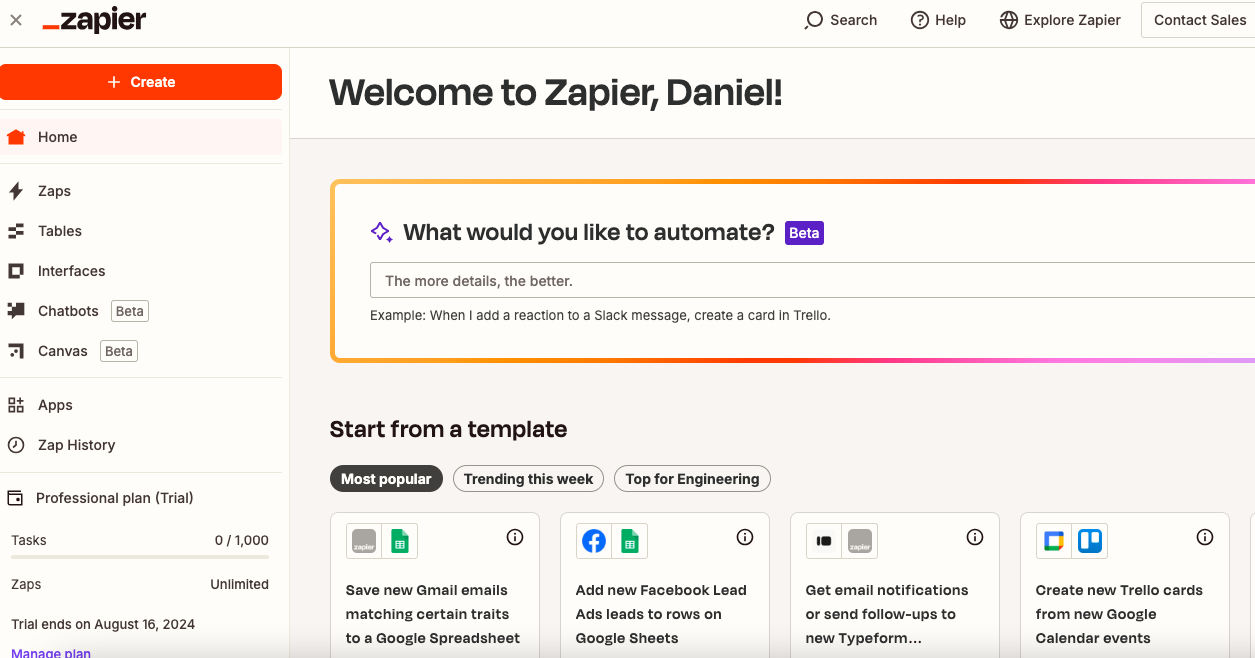
3. Grammarly
Grammarly is an AI-powered writing assistant that helps improve writing quality by checking grammar, style, and tone.
- Comprehensive Writing Support: Beyond basic grammar and spell-checking, Grammarly provides suggestions for clarity, engagement, and delivery. It evaluates writing for tone and style, helping users maintain a consistent voice across all communications.
- Plagiarism Detection: For businesses that produce content regularly, Grammarly’s plagiarism checker ensures originality, which is crucial for maintaining credibility and avoiding copyright issues.
- Integration and Accessibility: Grammarly integrates with various platforms, including Google Docs, Microsoft Word, and email clients, making it accessible wherever users write. Its mobile app also allows users to check their writing on the go.
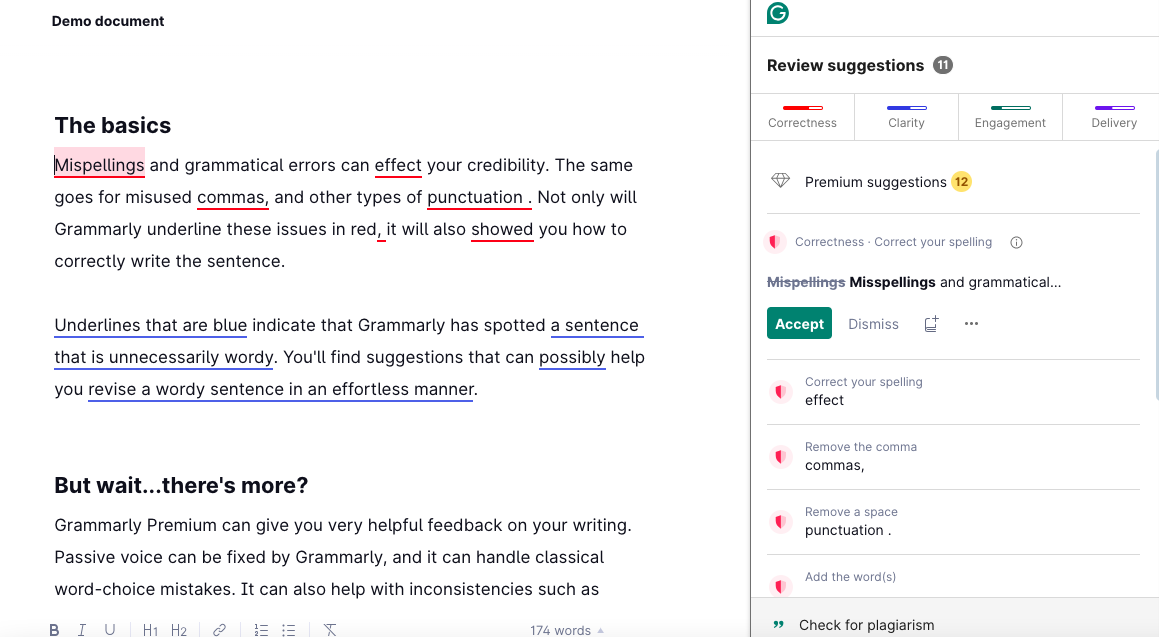
4. Notion AI
Notion AI enhances project management by providing AI-driven insights and automating documentation tasks.
- Integrated Workspace: Notion combines note-taking, task management, and collaboration tools in one platform. Notion AI can assist users by generating summaries, suggesting edits, and automating repetitive documentation tasks, making it easier to manage projects.
- Customizable Templates: Users can create customized templates for various projects, and Notion AI can help populate these templates with relevant information, saving time and ensuring consistency.
- Collaboration Features: Notion AI facilitates team collaboration by allowing multiple users to work on documents simultaneously, with AI helping to track changes and suggest improvements based on team feedback.
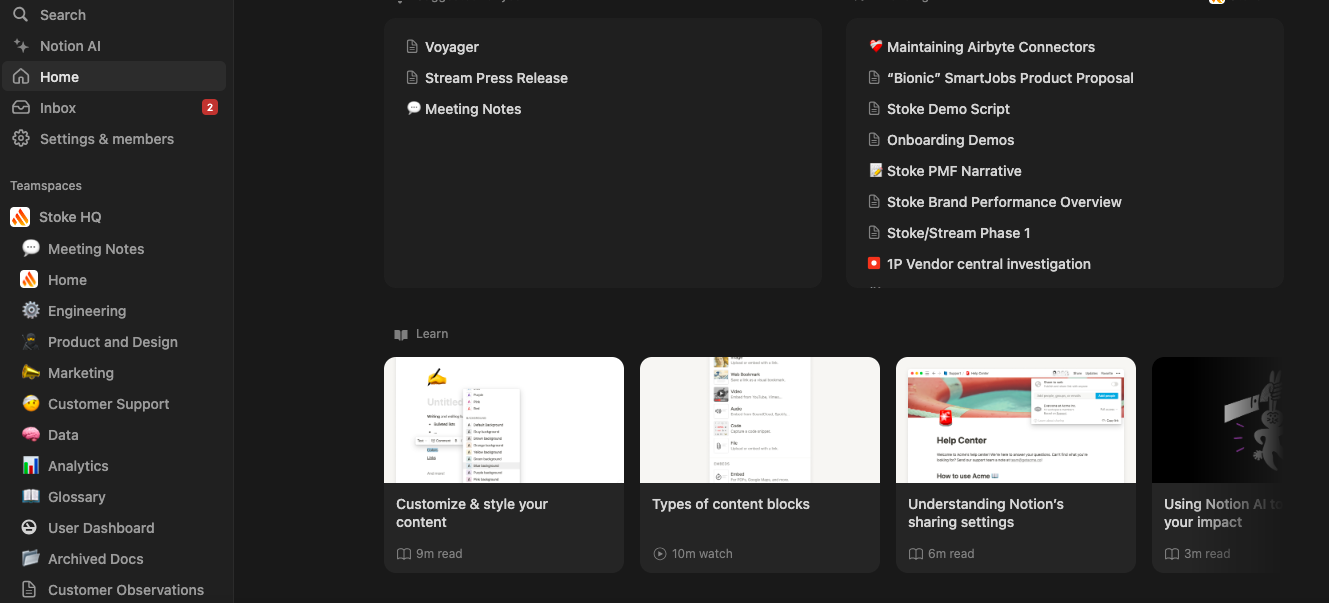
5. Jasper
Jasper is a powerful content generation tool designed to assist businesses in creating marketing copy, blog posts, and social media content.
- Diverse Content Creation: Jasper can generate various types of content, including product descriptions, ad copy, and long-form articles. It uses advanced language models, including GPT-4, to produce high-quality, contextually relevant text.
- Templates and Workflows: Jasper offers readymade templates for different content types, making it easy for users to get started. The platform also includes features for brainstorming ideas and generating headlines, enhancing the creative process.
- SEO Optimization: Jasper incorporates SEO best practices into its content generation, helping businesses create content that ranks well on search engines. Users can input target keywords, and Jasper will optimize the content accordingly.
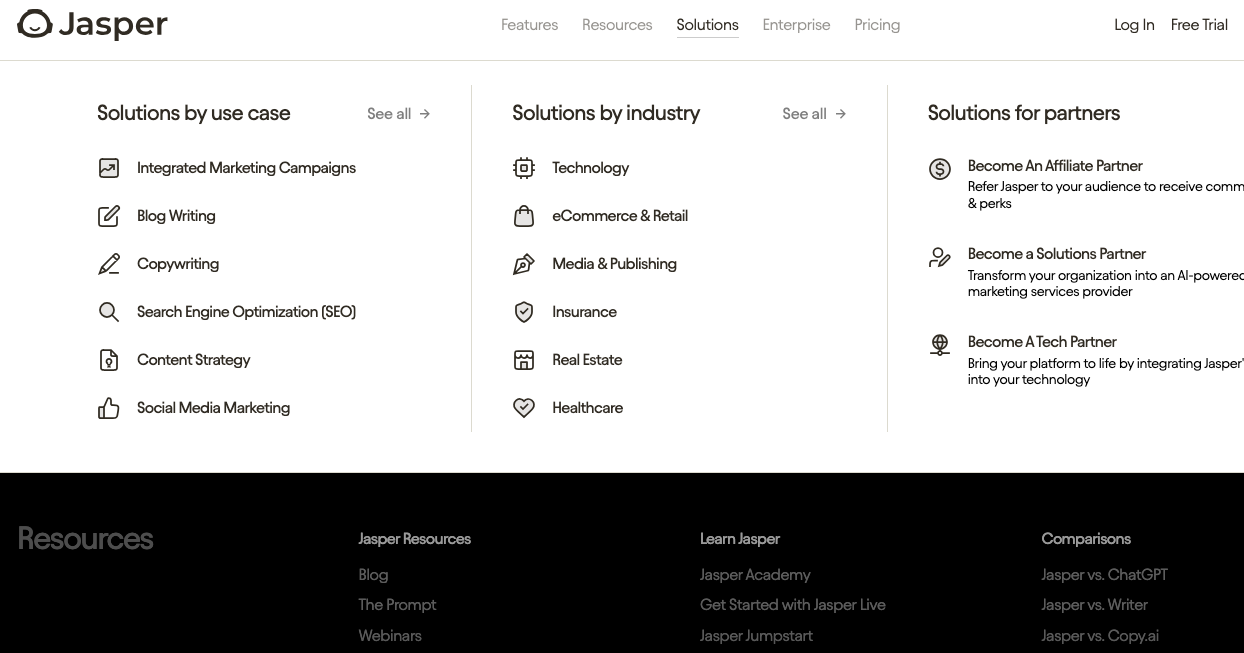
6. Midjourney
Midjourney is an AI image-generation tool that allows businesses to create unique visuals for marketing campaigns.
- Creative Visuals: Users can generate high-quality images based on text prompts, making it easier to create custom graphics for social media, websites, and promotional materials. This capability is particularly valuable for businesses looking to enhance their visual branding without the need for extensive graphic design skills.
- User-Friendly Interface: Midjourney’s intuitive interface allows users to experiment with different styles and concepts, fostering creativity and enabling rapid prototyping of visual content.
- Integration with Other Tools: Midjourney can be integrated with design platforms and social media management tools, streamlining the process of creating and distributing visual content.
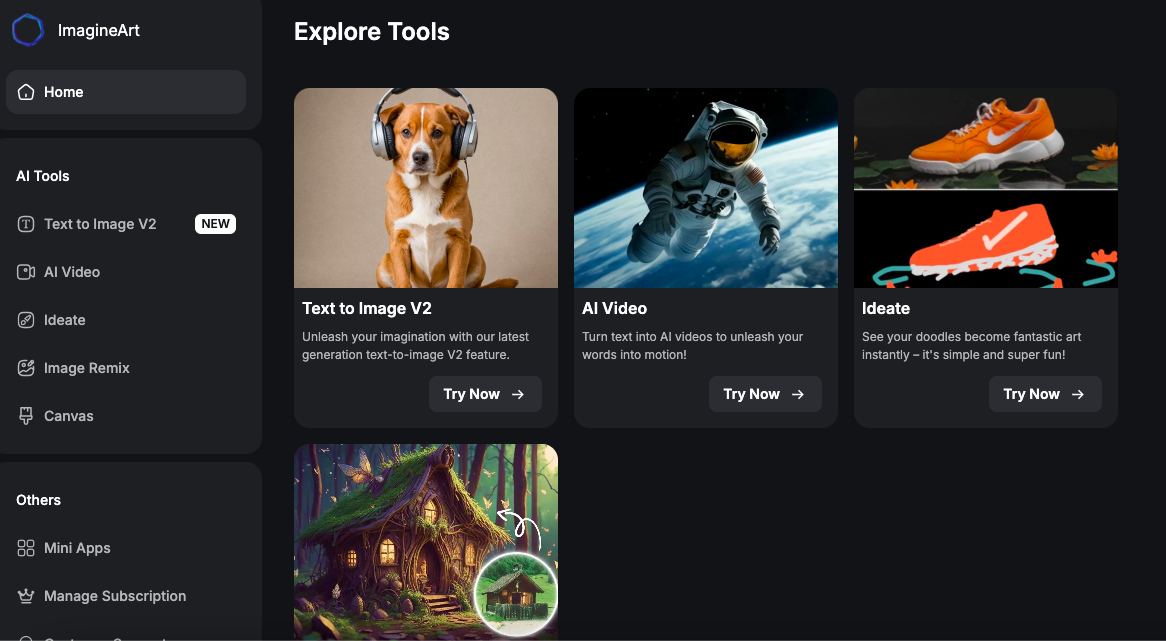
7. Fireflies
Fireflies is a meeting assistant that records, transcribes, and summarizes conversations, making it easier to track key points and action items.
- Real-Time Transcription: Fireflies provides real-time transcription of meetings, ensuring that all discussions are accurately captured. This feature is particularly useful for remote teams, where maintaining clear communication is essential.
- Action Item Tracking: The platform automatically identifies and highlights action items during meetings, making it easier for teams to follow up on tasks and responsibilities.
- Integration with Communication Tools: Fireflies integrates with popular video conferencing tools like Zoom, Microsoft Teams, and Google Meet, ensuring that users can seamlessly incorporate it into their existing workflows.
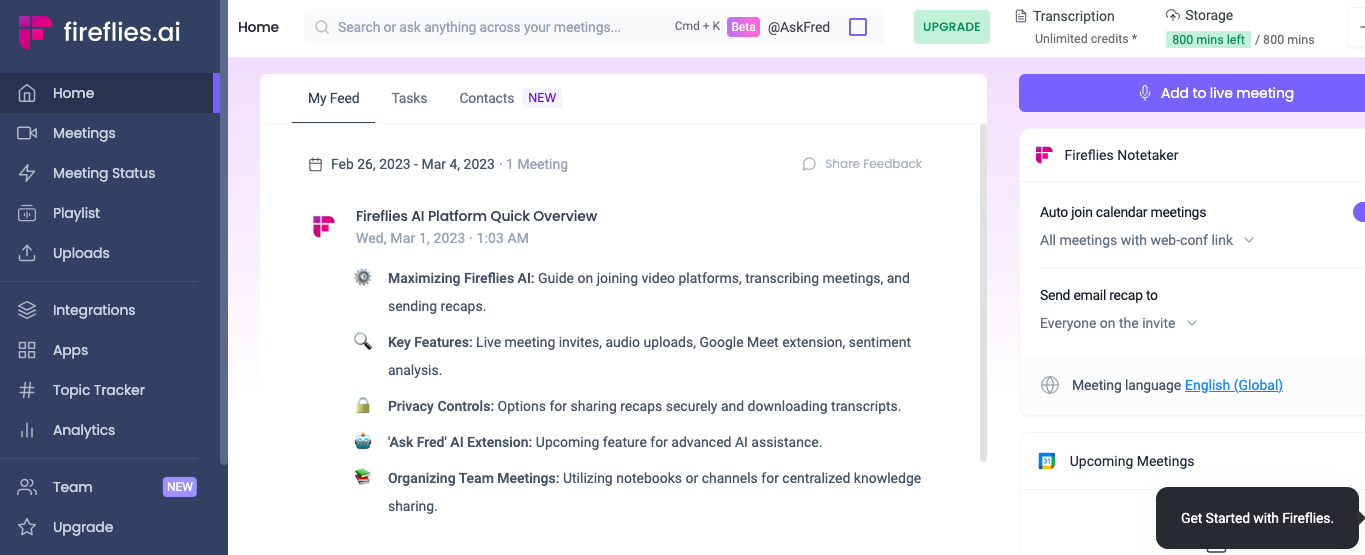
8. Airtable
Airtable combines the functionality of spreadsheets and databases to help teams organize and collaborate on projects effectively.
- Flexible Data Management: Airtable allows users to create custom databases that can be tailored to specific project needs. This flexibility makes it suitable for various use cases, from project management to inventory tracking.
- Collaboration Features: Teams can collaborate in real-time, with features that allow for commenting, file attachments, and task assignments. This enhances communication and ensures that everyone is on the same page.
- Automation and Integration: Airtable includes automation capabilities that allow users to set triggers and actions based on specific criteria, streamlining workflows. It also integrates with numerous other tools, enhancing its functionality and adaptability.

9. Bionic
Bionic is an innovative AI platform designed to streamline business processes by automating customer-facing interactions and handling repetitive tasks. It aims to enhance productivity and efficiency, allowing businesses to focus on more strategic initiatives.
- Affordable and Trustworthy AI Solutions: Bionic offers a cost-effective approach to AI automation without compromising reliability. The platform combines advanced AI technology and grounding AI techniques with human oversight to ensure high-quality results. This dual approach minimizes the risk of errors often associated with AI, such as AI hallucinations or inappropriate responses.
- Scalable and User-Friendly Workflows: The platform is designed to be easily configurable, allowing businesses to set specific tasks and requirements according to their needs. Users can trigger tasks on demand, making it adaptable to varying workload demands. As Bionic’s AI capabilities improve over time, the cost of operations becomes cheaper, providing a scalable solution that grows with the business.
- Human-in-the-Loop Approach: Bionic employs a unique human-in-the-loop model, where AI and human taskers collaborate to ensure quality and manage exceptions effectively. While the AI handles repetitive tasks, human oversight guarantees that the output meets the required standards. This synergy not only enhances productivity but also allows for quick adjustments during peak workloads or urgent task requirements.
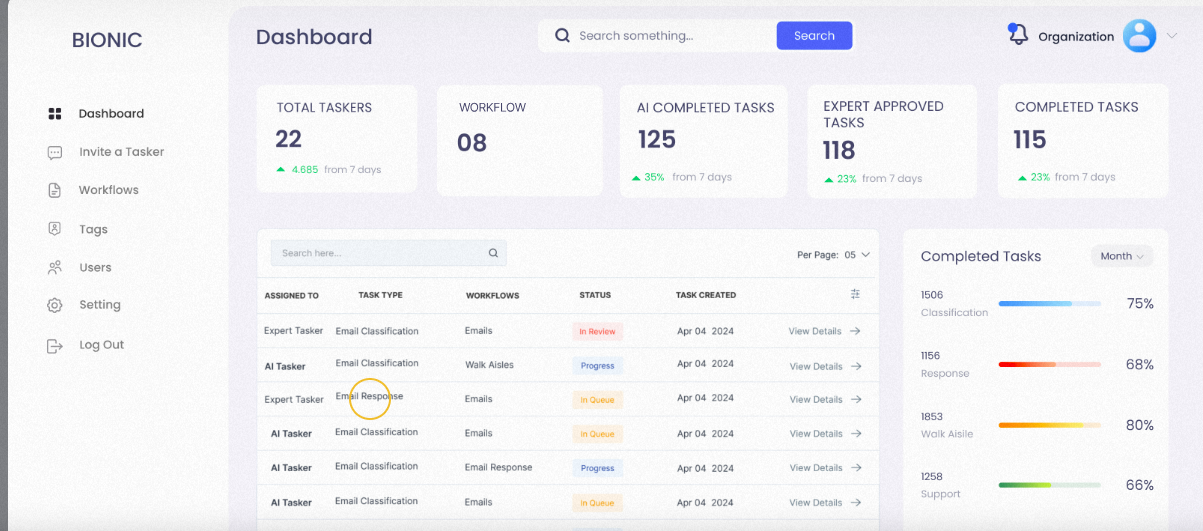
Conclusion
As we navigate the evolving landscape of business in 2024, the integration of artificial intelligence tools for business has emerged as a pivotal factor in enhancing operational efficiency and driving innovation.
Initially met with skepticism, AI is now recognized as a powerful ally that can augment human capabilities rather than replace them. This shift in perspective is crucial for small and medium-sized enterprises (SMEs) aiming to thrive in a competitive market.
AI tools have transformed various aspects of business operations, particularly in customer support, marketing, and productivity. For instance, AI-powered chatbots provide 24/7 assistance, significantly improving customer satisfaction by ensuring immediate responses to inquiries.
In marketing, predictive analytics enable businesses to tailor their strategies based on data-driven insights, enhancing lead generation and content optimization.
Furthermore, AI automation platforms like Zapier streamline workflows, allowing teams to focus on strategic initiatives rather than repetitive tasks.
However, the successful implementation of AI requires careful consideration of several factors. Businesses must clearly identify their needs, prioritize user-friendly tools, ensure seamless integration with existing systems, and maintain a strong focus on data security and compliance.